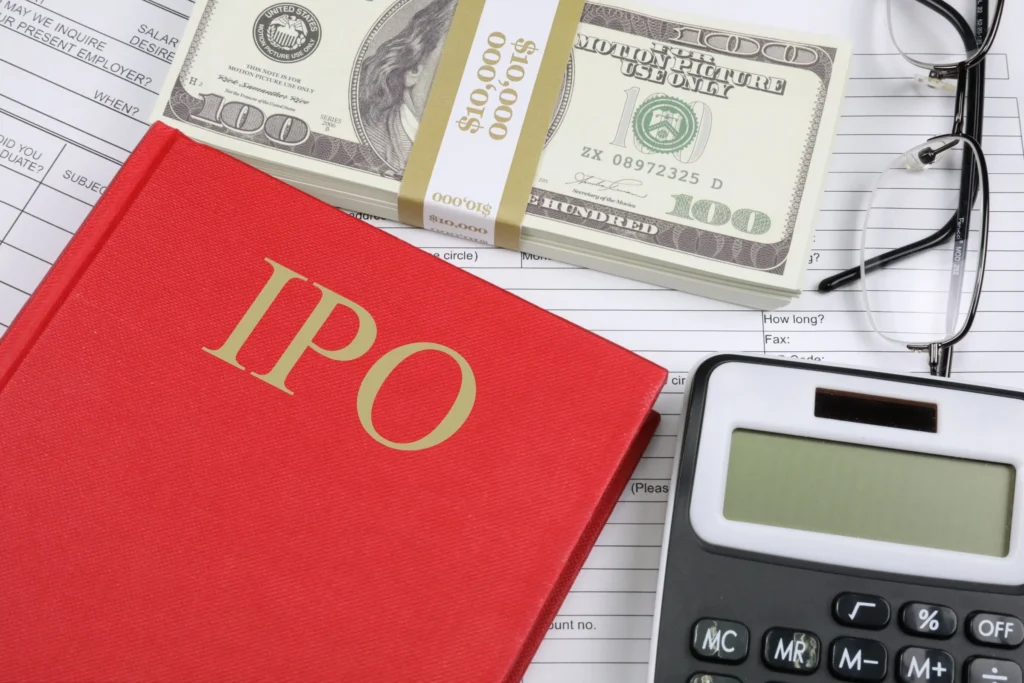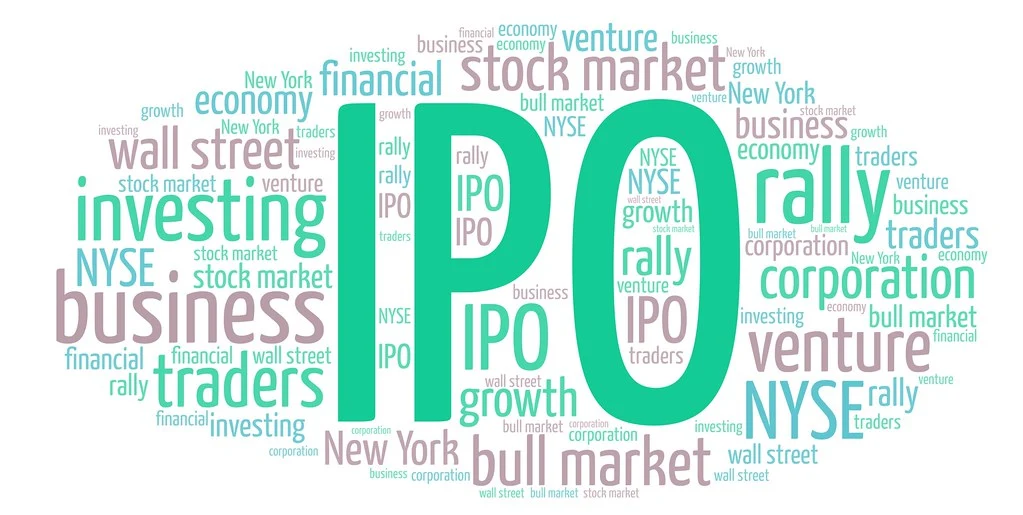
What is a business IPO?
A business IPO (initial public offering) is when a company sells its shares to the public for the first time. Before an IPO, the company is private. This means only a few people, like the owners or some early investors, can buy its shares. But when a company decides to “go public,” it sells part of the company to anyone who wants to buy a share.
Let’s break it down more simply. Think of a company as a pie. The owners have the whole pie, but after the IPO, they decide to share pieces of it with others. The pieces of the pie are like the shares. If you buy a share, you own a small part of that company.
Why Do Companies Have IPOs?
Companies choose to do an IPO for several reasons:
- Raise Money: When a company sells its shares to the public, it can make a lot of money. This money can help the company grow, create new products, or open new stores. It gives the company the cash it needs to keep getting bigger and better.
- Pay Off Debts: Sometimes, companies have borrowed money to help them start or grow. By selling shares, they can use the money they get from the IPO to pay back these loans.
- Become More Famous: When a company goes public, more people learn about it. This can make the company more well-known and trusted by people.
- Allow Early Investors to Sell Their Shares: Before the IPO, some people may have already bought shares of the company. These early investors can sell some or all of their shares during the IPO, making money for themselves.
How Does an IPO Work?
The process of an IPO isn’t something that happens overnight. It takes a lot of planning. Here’s how it usually happens:
- Deciding to Go Public: The company first decides it wants to go public. This is a big decision because it changes how the company is run.
- Getting Help from Banks: The company usually hires investment banks to help them with the IPO. These banks will help the company figure out how much each share should cost and how many shares to sell.
- Filing Paperwork: The company must share a lot of information with the public before the IPO. This includes details about how much money the company makes, what its plans are for the future, and any risks involved.
- Pricing the Shares: The investment banks and the company work together to set a price for the shares. This price needs to be just right – not too high, so people will want to buy, and not too low, so the company can raise a good amount of money.
- Going Public: On the day of the IPO, the shares are listed on a stock exchange, like the New York Stock Exchange (NYSE) or NASDAQ. People can start buying and selling the shares.
What Happens After the IPO?
After a company has an IPO, things change. The company now has more people, called shareholders, who own a piece of it. Shareholders can buy more shares, sell them, or hold onto them, hoping the value will go up.
The company also has to follow new rules. Public companies have to share their financial information with everyone. They also have to tell their shareholders about important events, like if they are making a big purchase or if they are having money problems.
Sometimes, after the IPO, the share price goes up, which is good for the company and the new shareholders. But sometimes, the price can go down, meaning that the shares are worth less than when people bought them.
Benefits of an IPO
There are many good reasons for a company to go public:
- More Money: The biggest benefit is that the company gets money to grow and improve. This can lead to new products, services, and bigger profits.
- More Trust: When a company is public, more people trust it. Customers and partners may feel more confident in working with a public company because it has to be more open about its actions.
- Better Opportunities: Public companies can attract talented employees and managers by offering them shares as part of their pay. This means the company can hire better workers.
Risks of an IPO
Even though an IPO has many benefits, there are also some risks:
- Pressure from Shareholders: After going public, a company has to answer to its shareholders. This means the company might face pressure to make quick decisions that increase profits but may not be good in the long run.
- Costs: It costs a lot of money to prepare for an IPO. The company has to pay lawyers, investment banks, and others to make sure everything is done right.
- Public Scrutiny: Once a company is public, it has to share a lot of information. This can be difficult if the company is facing problems or wants to keep certain details private.
Conclusion
What is a Business IPO-A business IPO is a big event for a company. It allows the company to grow, raise money, and become more well-known. But it also comes with risks, like having to deal with public scrutiny and shareholder demands. Whether the IPO is a good idea depends on the company’s goals and whether it’s ready for the challenges that come with being public. For many companies, going public is a sign of success and the start of a new chapter in their journey.

FAQs about a What is a business IPO:
- What does IPO stand for?
- IPO stands for Initial Public Offering, which means a company is selling its shares to the public for the first time.
- What is a share?
- A share is a small part of a company that people can buy. Owning a share means you own a tiny part of that company.
- Why do companies do IPOs?
- Companies do IPOs to raise money, pay off debt, and become more well-known.
- What happens when a company goes public?
- The company sells its shares to anyone who wants to buy them, and people can trade the shares on a stock exchange.
- How do I buy shares in an IPO?
- You can buy shares through a broker or an investment app when the company’s shares are listed on a stock exchange.
- What is a stock exchange?
- A stock exchange is a place where people buy and sell shares. Examples are the New York Stock Exchange (NYSE) and NASDAQ.
- What does it mean to be a shareholder?
- A shareholder is someone who owns shares in a company. This means you own part of that company.
- Can I make money from an IPO?
- Yes, if the company’s shares go up in value, you can sell them for a higher price than you paid.
- Can I lose money in an IPO?
- Yes, if the share price goes down after you buy, your shares will be worth less than you paid.
- What is the role of a bank in an IPO?
- Investment banks help the company figure out how much to sell the shares for and help sell them to the public.
- Are IPOs only for big companies?
- No, both big and small companies can do IPOs if they are ready to go public.
- What is the difference between private and public companies?
- A private company is owned by a few people. A public company is owned by many people who buy shares.
- Is an IPO the same as selling the whole company?
- No, the company only sells a part of its shares, not the entire company.
- What happens to the company’s owners after the IPO?
- The owners still keep some shares, but they now share ownership with the public.
- What does “going public” mean?
- “Going public” means a company is offering its shares to the public for the first time in an IPO.
- How is the share price decided in an IPO?
- The price is set by the company and investment banks based on how much they think people are willing to pay.
- Do all IPOs succeed?
- No, some IPOs do not go well, and the company’s share price can go down.
- What are the risks of buying shares in an IPO?
- The price might drop, and you could lose money if the company doesn’t perform well.
- Can anyone invest in an IPO?
- Yes, anyone with access to a stock exchange through a broker can invest in an IPO.
- How do I know if an IPO is a good investment?
- It’s important to do research about the company and ask experts before investing.
- What is a prospectus?
- A prospectus is a document that gives information about the company and its IPO. It helps people understand the company before they invest.
- What is underpricing in an IPO?
- Underpricing is when a company sets its share price lower than what it could be. This makes it easier for people to buy shares and can help the share price go up quickly after the IPO.
- What does it mean to trade shares?
- Trading shares means buying and selling shares on the stock exchange. People do this to make money based on the share prices.
- Can a company cancel its IPO?
- Yes, a company can cancel its IPO if it decides it’s not the right time or if it doesn’t like the share price.
- What is a lock-up period?
- A lock-up period is a time after an IPO when the company’s insiders, like founders and employees, can’t sell their shares. This helps keep the share price stable.
- What happens if the IPO is not successful?
- If the IPO is not successful, the company may struggle to raise money, and its share price may drop, causing losses for investors.
- What is a follow-on offering?
- A follow-on offering is when a company that is already public sells more shares after its IPO. This can help the company raise even more money.
- Are there different types of IPOs?
- Yes, there are different types of IPOs, like traditional IPOs, direct listings, and special purpose acquisition companies (SPACs).
- What is a direct listing?
- A direct listing is when a company goes public without selling new shares. Instead, it allows existing shareholders to sell their shares directly to the public.
- How can I keep track of my shares after an IPO?
- You can track your shares using a brokerage account or investment app that shows your investment portfolio and share prices.